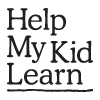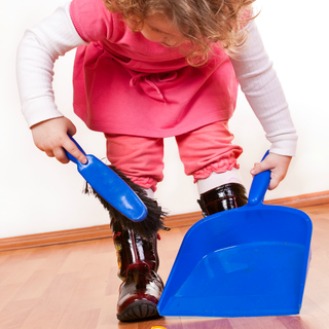What to do with this activity?
Your family, whatever its shape or size, is a small community where your child can learn to play their part in society. Encourage them to think of themselves as part of a family "team" and later as part of a playschool or school "team".
Being part of a team means sharing the responsibility for getting things done. Include your child from an early age in the everyday activities that happen around your home - like family meals, cleaning, tidying. Let them help you with the daily chores. As they grow older, give them a little more responsibility and let them know that it's good to help even when they don't feel like it. At this age they might be able to help set the table, put away toys, sweep up with a pan and brush, help look after a pet.
There are lots of benefits for children who help with chores - increased confidence and independence, development of gross and motor skills, family bonding, learning to work with others. Read more about the benefits in this article from the Australian parenting website Belly Belly.
-
Why am I doing this?
Maths is more than working with numbers. It also consists of shape and space, patterns, measuring – things you do and come across in everyday life. When children begin to learn formal maths at school, they are building on a foundation of early numeracy learning from home. Even though they may not even be aware of it, parents and children engage in numeracy activity as part of their everyday lives.
-
How can I do more?
Always teach numbers in a natural way through everyday activities and play. Count steps on a stairs, food in your shopping trolley or cows in a field. Compare things when talking big or small, long or short, older or younger and faster or slower: “You carry the small box and I’ll take the big one.” Use the words – up and down, over and under, near or far, more or less when talking to your child. Talk about the shapes of everyday things. Ask your child what shapes they can see around the room they’re in.
Rate this activity
![]()
![]()
![]()
![]()
![]()
Based on 30 reviews
How would you rate it?
1 = Poor, 5 = Great.



